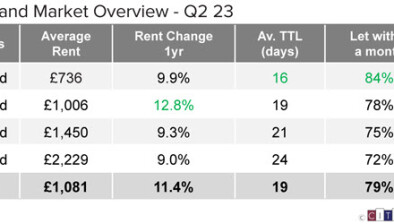Ex-landlord who sold property without replacing shutters or carpet not entitled to claim replacement costs

A former landlord who alleged that his tenants had stolen a set of shutters and failed to pay for replacement carpets has been refused permission to appeal his two cases against them to the Upper Tribunal for Scotland after it upheld the First-tier Tribunal’s decision in both cases that no loss had been suffered.
Karl Mooney rented parts of a property in Newport-upon-Tay in Fife to Donna Vincent and Liam and Sheona Vincent-Kilbride from 26 May 2018 to 25 June 2022. While the tenancy agreement provided for the carpet to be replaced, the appellant sold the property following the end of the tenancy without installing new carpets or a new shutter.
The applications were considered by Sheriff Derek O’Caroll of the Upper Tribunal, with all parties appearing in person at a WebEx hearing on 8 January 2025. While separate decisions were issued in the applications regarding the shutters and the carpet, both were decided on substantially similar reasons.
No longer owned
The appellant submitted claims to the FTS seeking £3,450 for the cost of replacing a set of bespoke wooden shutters in one of the bedrooms at the property and a further £1,757 to replace the carpets. The respondents denied theft of the shutters and claimed that they had fallen into disrepair and then been placed in the attic. It was accepted that none of the respondents had acted to replace the carpets at the ends of their respective tenancies.
Once the subjects of the tenancy were vacated, the appellant sold the property without replacing the shutters or carpets or incurring any cost in respect of either matter. Before the FTS he did not offer to prove that the sale price of the property was in any way reduced by the absence of working shutters, or by the carpets not being replaced.
The appellant’s claims therefore rested solely on the proposition that the respondents were in breach of their tenancy agreements and on that basis were obliged to pay him the costs of both items, even though he no longer owned the property. The FTS refused both claims on the basis that the appellant had not suffered a loss, even though in the case of the carpets the tenants were in breach of their contract.
In seeking permission to appeal the appellant relied on essentially the same grounds as he advanced before the FTS, namely that he did not need to prove that he had incurred a loss due to the respondents’ breach of contract. The position of the respondents was that the FTS had made the correct decision, and no error of law had been demonstrated by the appellant.
Must cause loss
In his decisions, Sheriff O’Carroll said of the underlying law: “This is essentially a claim for damages by the appellant resulting from a breach of contract, the contract being the tenancy agreement. In Scotland, damages are restitutionary. That is, damages are awarded to restore the wronged party to the position they would have been had it not been for the breach of the contract by the wrongdoer. Therefore, the principle is that a breach of contract must cause loss to the pursuer to entitle the pursuer to damages.”
He added: “The burden is on the wronged party to prove his loss. If he fails, no award of damages is payable. Thus, there is no disgorgement of the defender’s gains: it is the pursuer’s position that must be considered in the case of damages for breach of contract. So any gain made by the wrongdoer is not the correct basis for assessment of damages.”
In his decision in respect of the shutters, Sheriff O’Carroll said: “The FTS did not make any clear finding that there had been any breach of contract on the part of the respondent, finding only that the shutters in the bedroom were broken and removed during the tenancy. The way that the FTS approached the question of damages was not to decide whether there was a liability for damages on the part of the respondents but rather to decide whether even if there was such a liability, the appellant had suffered loss.”
He concluded: “Given that the appellant did not attempt to prove any loss, he not having replaced the shutters attached to the house, and the price for which was not reduced by the absence of working shutters, it follows that the tribunal was correct to refuse his claim for damages in respect of the shutter.”
In deciding the appeal in respect of the carpets, the sheriff noted: “While the FTS did find that the respondents were in breach of contract, the claim for damages was refused because the pursuer, upon whom the burden rested was unable to prove any loss. Indeed, he did not attempt to prove any loss relying simply on what would have been the cost of replacing the carpets in the house had he chosen to do so before he then sold the house. Given that the appellant did not attempt to prove any loss, it follows that the tribunal was correct to refuse his claim for damages in respect of the carpets.”
No error of law having been demonstrated in either case, permission to appeal was therefore refused in each instance.








